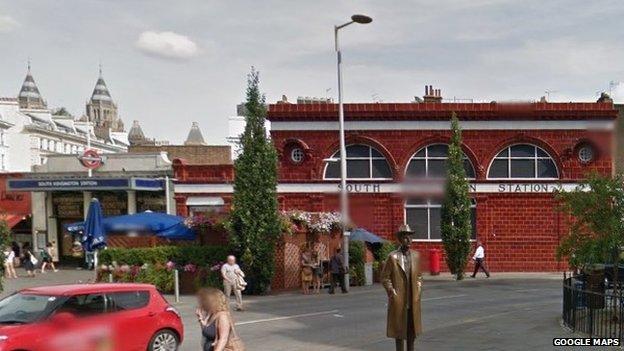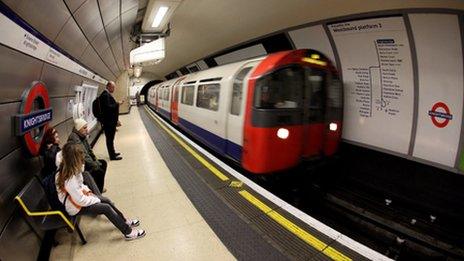Transport for London set to become private landlord to create revenue
- Published

South Kensington station is on the list as one property which could be redeveloped and leased out
It runs the capital's trains and buses, and it already leases commercial space, but soon Transport for London (TfL) could be renting out flats.
Over the next 10 years, the organisation is looking to radically capitalise on its property portfolio to utilise another revenue stream after its government grant was cut.
It claims it has more developable sites in central London than anyone else and over the next decade will redevelop 50 of those sites, mainly in zones one and two, across 10m sq ft.
TfL said it intends to do this by entering into partnerships with property developers - it will put up the land while the developers will provide the bulk of the money and carry out the work, before both share the proceeds.
Housing, employment and investment
This could mean selling off properties, leasing some commercial units and renting out flats.
The land and properties on the list include South Kensington station, Parsons Green depot and Kidbrooke station.
TfL said these developments would provide employment, investment and about 9,000 homes could be developed on the land.
Incongruous?
I'm told in the case of South Kensington station, any proceeds would be invested in providing step free access at that station with revenues on top of that reinvested in the transport system.
Transport companies getting involved in property is not new, just look at the creation of Metroland , externalin the 1920s.
And there is no doubt TfL is becoming more and more commercial.
It says it is looking to generate £3.5bn in commercial revenues over the next decade.
This will certainly help the balances on the TfL spreadsheets, but there will be those for whom it will still feel incongruous that TfL is actively becoming a private landlord.
- Published4 December 2013
- Published21 March 2013
